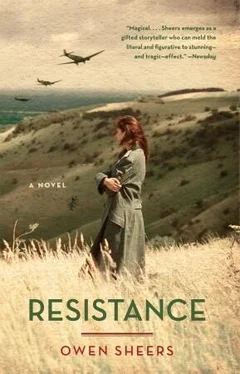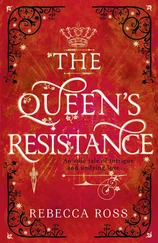They are close, Tom. The bells at Longtown were ringing without stopping for half an hour this evening. I could hear them clear. Maggie came straight over and then we went to stop in on Menna. Mary is up with Edith. Menna is very tired with her two .
I think we all know what the bells mean but Maggie won’t have it. She still says they won’t come up here. But it is frightening, Tom. I am scared. Mary wants Bethan to go over to her cousin in Hay. I keep thinking of those stories we heard at the start. When the Germans went into Poland and Holland. I wish you were here .
Maggie’s been into market twice now and says there’s no word there. She didn’t say anything, and neither would I, Tom. But I do wish I knew .
Just heard some planes. Heavy ones by the sound of it. Don’t know if they are theirs or ours anymore .
I hope you come back before it gets cold. I hate to think of you on the mountain in winter. If that is where you are .
It was getting easier, this writing to Tom, but there was still so much she couldn’t tell him. For some reason, after the first two weeks she grew to expect him back more than ever. As if two weeks was enough. As if there was a season for his missing, just as there was a season for everything else and it should be waning now, just as autumn was waning to winter. She began waking in the mornings feeling as stripped as the branches outside her window.
More than once she thought Tom had left signs for her. That he’d come back when she wasn’t looking and left signs only she’d recognise. First it was a yearling ewe with foot rot in the yard in the morning. The dogs were lying down, still chained, watching it as it hobbled back and forth in front of the gate, bleating weakly. Sarah couldn’t see how it would have got in. When she found it she went round the back of the house and looked up the hill, feeling her heart gulping in her chest like water from the hand pump. But he wasn’t there, Tom wasn’t there. Just this sheep in the yard with one foreleg swinging from the knee as it held its bad hoof off the cobblestones.
Since then she’d seen some kind of a sign nearly every day. Tools she was sure she’d left out hung back in the lean-to; the coal-shed door closed when she thought she’d left it open; a couple more pleachers than she’d left the previous night, woven into a hedge she’d been fixing. Once it was a new tooth in the old haul rake, a fresh blond whittled peg plugging the gap she was sure she’d seen there just the day before. But then she was so tired. She couldn’t always be certain, and over the hours doubt would seep into her sense of revelation, until by the end of the day, as she climbed the stairs to bed, she was as empty as ever, giving herself to another night of bad good dreams or good bad dreams. Both left her feeling like those branches outside her window. Robbed, exposed, bare.
This evening, after a day of no signs at all, she’d gone looking for one of her own. Opening the dark wooden wardrobe in their bedroom, she’d sat on the edge of the bed in her nightdress and pressed Tom’s clothes to her face. There was nothing of him in his formal clothes, in his best suit or his pressed white shirts. Just the acid smell of mothballs. But in his working clothes he was still there, just. As faint as the indentations of his body in the mattress had been at the end of that first day. A stale sweat smell. Musty, worn, traces of animal.
Perhaps it was the smell of Tom that brought her bleeding the next morning as she sat shivering on the seat of the ty bach out the back of the house, watching the dawn light melt through the little window from black to blue to grey. She was disappointed. For a couple of months before Tom had gone, she’d been slipping a day here or there in the calendar, hoping he wouldn’t notice. And he hadn’t, so when she was late this month, she’d allowed herself a brief blush of hope. Maybe against all odds it had happened. Tom had always been firm on this. No children while there was a war on. No more mouths to feed until it’s over. Sarah had never understood. They’d have enough food and she wasn’t getting any younger. Twenty-seven next March. So she’d begun slipping the odd day here and there, convinced Tom would be pleased when she eventually fell pregnant. And now just when she realised why Tom had been so reluctant, she thought maybe, just maybe, she’d been able to keep some of him after all. But this morning had proved her wrong. She’d known as soon as she woke. The familiar long drag of pain below her stomach. And then on coming out here, the first drops of deep black blood. She’d been wishing for the impossible, she knew that now. She’d been working hard. She was worried, not sleeping well. Of course she might be late. It had been too much to hope for, especially with Tom gone when even the simplest hope, to have him back, seemed so forlorn. As she sat there, looking out at the lightening sky, Sarah even found herself placing these two hopes on either side of a superstitious equation, with herself at the centre. Was this her punishment for trying to deceive Tom? Him and the others going like that? If it was, she wished she could turn back the clock now. To have Tom back, all of them back, that was the impossible she wished for now. That was all she wanted. The world back in place and the valley continuing as normal, whatever happened beyond it.
The still dawn she’d watched through that window turned into a crisp morning, brittle with brightness after the days of loose rain billowing like undone curtains across the valley. Every twig of every branch seemed redrawn, sharper. The edges of the hills were newly refined against the sky like old blades worked to a thinness on the granite sharpening wheel. When Sarah came out again later to untie the dogs, she saw the valley wall opposite was run with several fresh scars. The waterlogged earth had given way overnight, slipping down the slope, leaving tapering brick red marks in its wake. “Like a giant cat’s been clawing its way out of here.” Her mother’s voice again, echoing down the years. These landslips often happened after heavy rain. The valley was so steep it would always give in to itself in the end.
The sound of horseshoes scuffing on the track below Upper Blaen signalled Maggie’s arrival. Seren and Fly pricked their ears, eyes fixed on the gate that led down onto the lane, and Sarah rubbed her gloved hands and stamped her feet against the cold. Together with Maggie they’d go up onto the hill and bring down the lambing ewes. Maggie would ride her cob mare and Sarah would try and work the dogs. If things went well they might be done by evening.
The women were through the wood, its canopy opened by the autumn leaf-fall, and making their way up onto the sheep tracks running through the shrunken bracken when they heard the hammering. It echoed off the narrow valley walls, each metallic hit answered by another knock, slightly duller, following close after. It was like the working of a massive buried clock that after years of silence had found its rhythm once more. Tick- tock . Tick- tock . Tick- tock . A pause, then the same again, regular and methodical ringing through the fragile November air.
Both women stopped. Maggie turned her mare into the slope and turned her good ear to the valley. “It’s comin’ from The Court,” she said, “or near there anyway.”
They listened in silence as the hammering beat on, paused again and started again.
“Reg?” Sarah asked, unable to suppress a breath of hope in his name.
“No.”
“But then who—”
“I dunno,” Maggie cut Sarah short. “Constable Evans maybe? I saw him at the market. Up from Pandy. Said he’d come by if he could, though I told him no need, of course.”
Читать дальше












